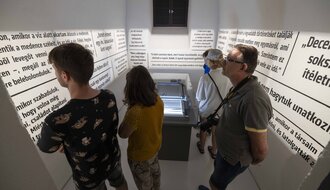School Groups and Museum Education Programmes
Interactive Learning Experiences
The educational programmes of Veszprém Dungeon bring the history of crime and punishment closer to students in an engaging and interactive way. Through special history lessons, drama-based workshops, thematic guided tours and city walks, pupils become not only observers but active participants in discovery. These activities foster critical thinking, empathy and social awareness, while offering a memorable experience for young people interested in history, literature and local heritage.
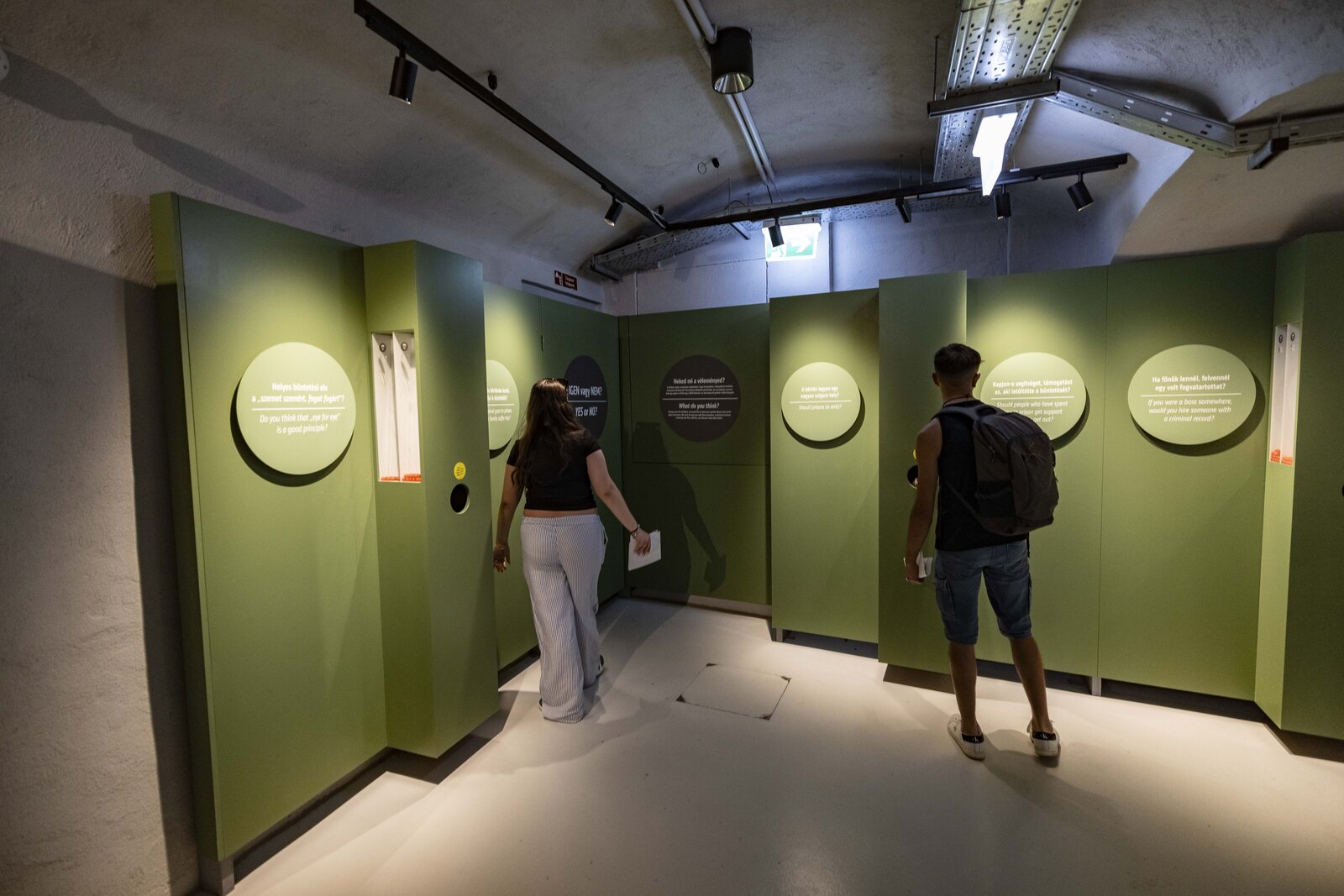
Why do we recommend Veszprém Dungeon programmes for school groups?
- Interactive, experience-based learning: captures students’ attention more effectively than a textbook.
- Special history lessons in a unique setting: strengthen connections with the school curriculum.
- Developing critical thinking: helps students form their own independent opinions.
- Fostering empathy and social sensitivity: supports wider educational objectives.
- A tangible link with history: transforms teaching into a lived experience.
- Integration of literature, art and philosophy: connects with several subjects at once.
- Drama-based learning methods: engage even more reserved students.
- City walks to historic locations: take learning beyond the classroom while remaining educational.
- Exploring fascinating historical cases: motivates students to research and investigate.
- Enriching yet entertaining excursions: combining education, community building and lasting memories.
WHAT DOES VESZPRÉM DUNGEON OFFER SCHOOLS?
How Are the Educational Experience Packages of the Dungeon Visitor Centre Structured?
The programmes of the Veszprém Dungeon Visitor Centre are not merely guided tours or museum visits – they are carefully designed learning experiences, structured in three stages and tailored to the recommended age groups (from 12 years upwards). Their aim is to spark students’ curiosity about history, crime and punishment, and human destinies, while at the same time supporting the school curriculum and broader educational goals.
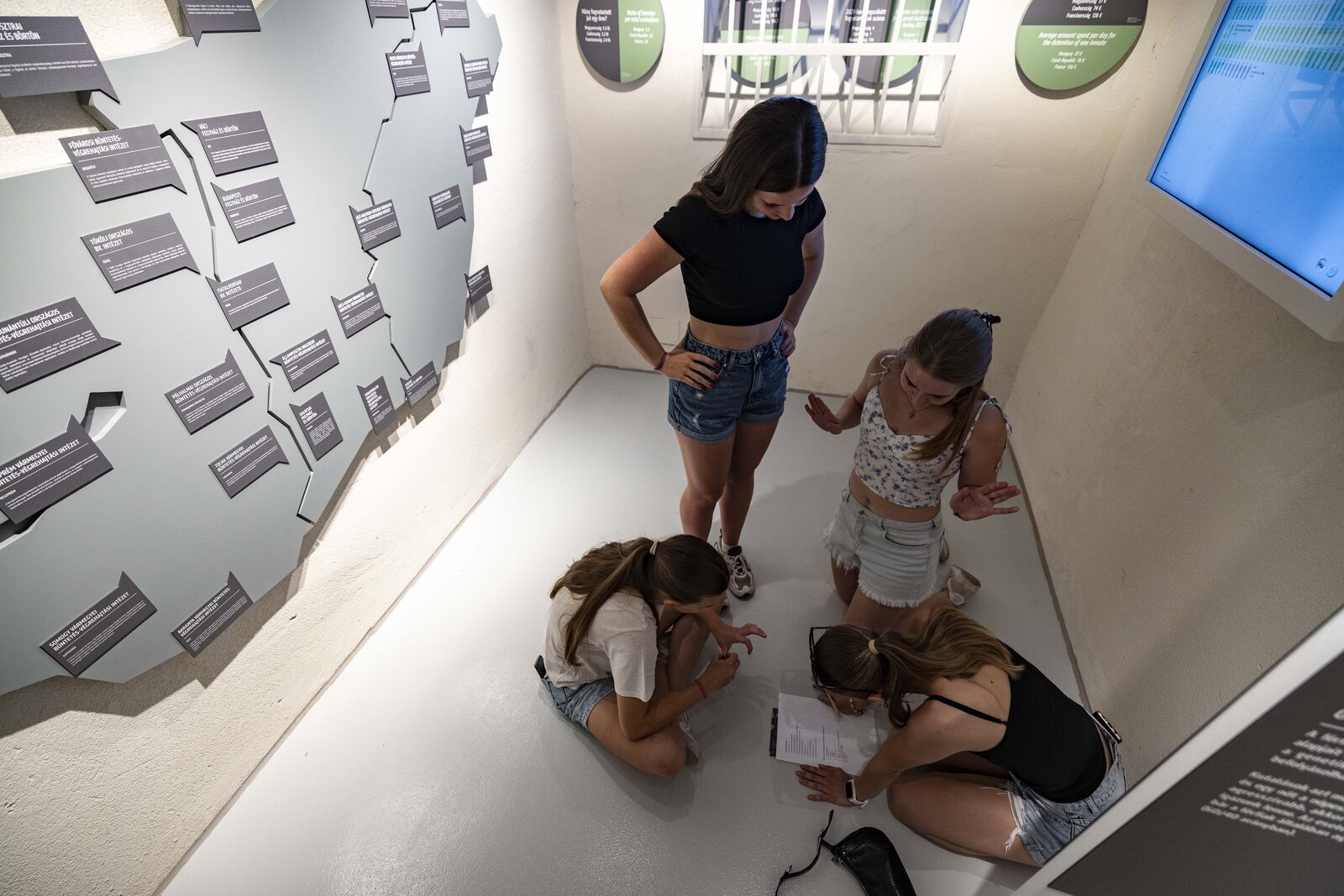
1. Preparation – with Teacher Support Materials
Teachers receive detailed resources to help prepare students for the visit and integrate the activities into classroom work.
This may include a preparatory discussion on the historical changes in crime and punishment, interactive worksheets, or even short thought-provoking exercises on judgement and the concept of guilt.
2. Experience – Interactive Discovery at the Dungeon
Students take an active role in the programme:
- In special history lessons they explore the exhibition material as investigators.
- In drama-based workshops they experience the emotional and moral dilemmas of decision-making situations.
- On thematic guided tours and city walks they encounter the history of crime, punishment and justice at first hand.
3. Reflection – Processing and Feedback
After the visit, students work through their experiences with reflective and creative activities.
For this, we provide educational support materials which:
- Help integrate what has been learned into classroom lessons.
- Enable further exploration through literature, art, history or ethics.
- Encourage group discussions and the development of critical thinking.
Curriculum Links:
History, Hungarian language and literature, Ethics, Drama and Theatre, Visual Culture,
Civic Education, Religious Studies
PROGRAMME TYPES
-
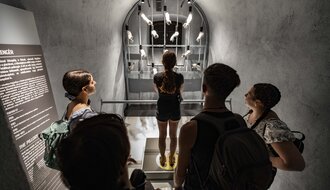
-
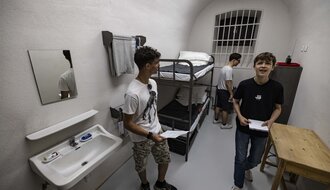
-
